Slow Knowing Deep Learning
for Health-Justice
Pleasure and Possible Futures
Live zoom session https://us02web.zoom.us/j/86419703983
3.30pm – 5pm UK time Meeting ID: 864 1970 3983 Passcode: 113544
Activity One
Sensuality
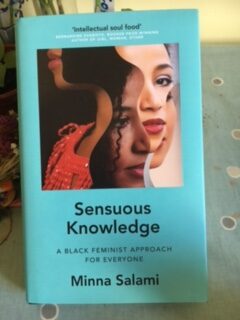
Do you remember this article by two Canadian dietitians , Jenna and Jacqui, that explored how mind/body disconnect is taught in conventional dietetic education?
More generally, western science is underpinned by a value system that presents rational knowledge as the source of valid truth, and believes (irrationally, as it happens) that rational knowledge is somehow generated entirely absent of emotion or anything else deemed non-rational.
How would the knowledge we bring and create in our professional life be different if we had been taught to value sensuality?
How might a public approach to eating be different? What about therapeutic approaches to eating?
Can you imagine what the broader impact might look and feel like?
Activity Two
Pleasure, Sensuality, Joy, and Creativity
This section contains a list of inter-linked questions around pleasure, sensuality, joy, creativity and their inter-connections. My suggestion is that you read it through and then choose a few question that resonate with you to explore further.
We’ve already talked about creativity, and the ideas of a creative time-line. How does creativity interlink with pleasure/joy/ andor sensuality for you?
How would it feel to create a pleasure or joy time-line? What are the ways that sensuality maps to this?
What delights you? Makes you belly laugh?
What did you learn about pleasure and sensuality growing up? If these came with moral judgement, and you haven’t yet explored this legacy, you might like to write a letter to or from a younger version of yourself to or from the self you are now. Go gently.
Can you define what pleasure or joy means for you? What adjectives, emotions, states of being and so on are conjured. What brings you pleasure? What creates joy?
(How) do connection and congruence fit in to your ideas or experiences of pleasure/joy?
What gets in the way of you experiencing more pleasure? More joy? Is there anything you yearn for? What’s the story here?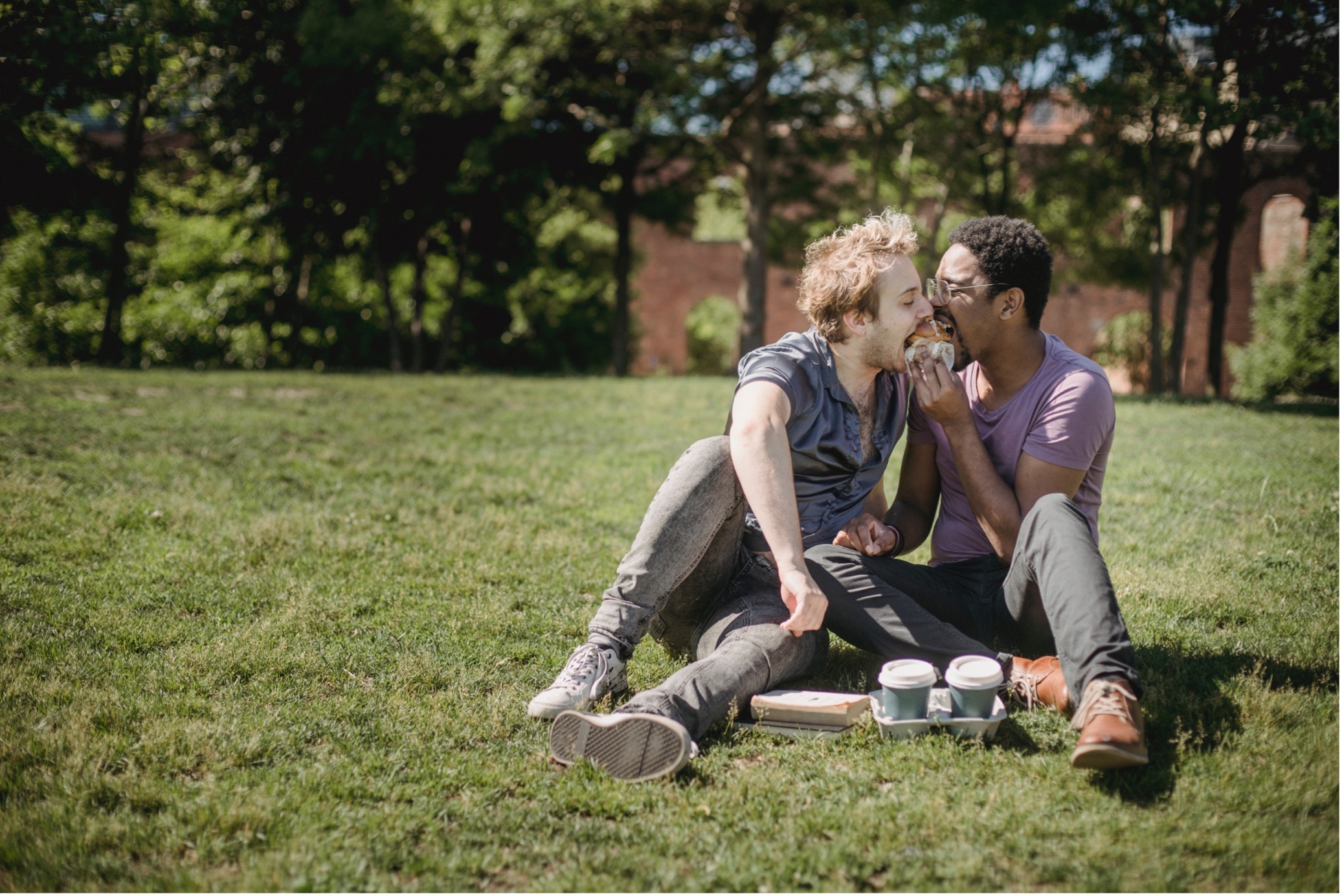
Shame, eating, and identity circle the same orbit, and are imbued with questions around pleasure and the feeling, sensate body. How often do you talk about, and about links between, pleasure, appetite as driver for pleasure, the erotic, sensuality, desire, sexuality, interconnection with people you support professionally? (Add anything else that jumps out for you). Is this something you’d like change?
(How) do pleasure and joy flow between various realms of your life, such as your personal, professional, spiritual lives?
What do these questions/framings miss that is important to you? 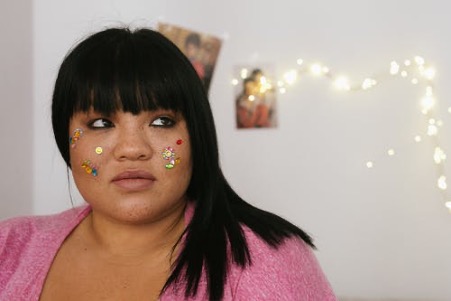
Activity Three
Emergent Strategy and Pleasure Activism
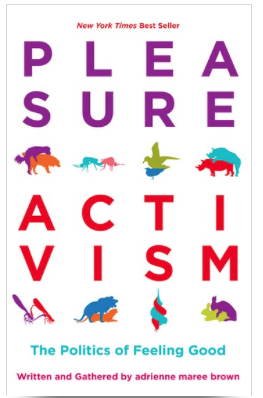 adrienne maree brown’s books Emergent Strategy and Pleasure Activism are a central pivot in any discussion of pleasure and possible futures.
adrienne maree brown’s books Emergent Strategy and Pleasure Activism are a central pivot in any discussion of pleasure and possible futures.
This article is a conversation where adrienne shares her ideas about pleasure activism,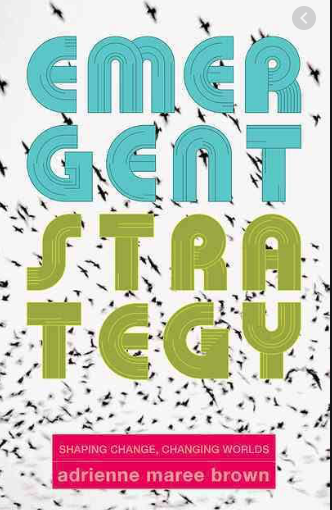 urging us to get in touch with ourselves.
urging us to get in touch with ourselves.
Here’s adrienne’s blog. The Fantastic Life page directly links to the topic of pleasure.
This page tagged pleasure activism has resources for surviving Covid, including a link to her podcast How to Survive the End of the World.
There are also heaps of podcasts with adrienne as a guest.
Activity Four
Working With Pleasure in Practice
Here’s a teach-sheet that gives an idea of how I introduce pleasure in discussions of realistic fitness.
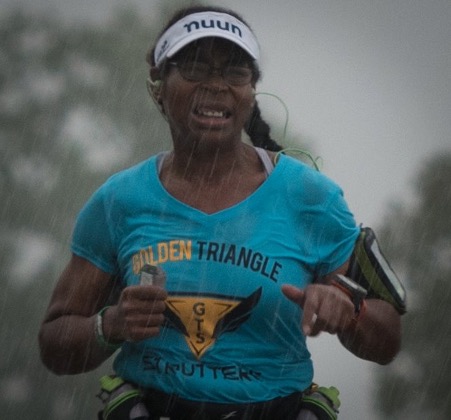 I’d likely ask about any differences between being outside and being indoors and being with other people too as way of bringing in the interplay of non-human nature/ earth-connection and safety. (Note to self: I could add some trees and benches as a prompt).
I’d likely ask about any differences between being outside and being indoors and being with other people too as way of bringing in the interplay of non-human nature/ earth-connection and safety. (Note to self: I could add some trees and benches as a prompt).
Anytime we talk about body awareness, and ways of knowing, is also an opportunity to touch on pleasure and joy, often connection too. We’ve covered this in this course in various ways, including naming body feelings and sensations, and Audre Lorde’s essay on the erotic.
To reiterate, these conversations can be deeply painful for anyone who has experienced trauma in any way. This includes body shame/body shaming related to fat stigma, disability, gender or any other characteristic or experience.
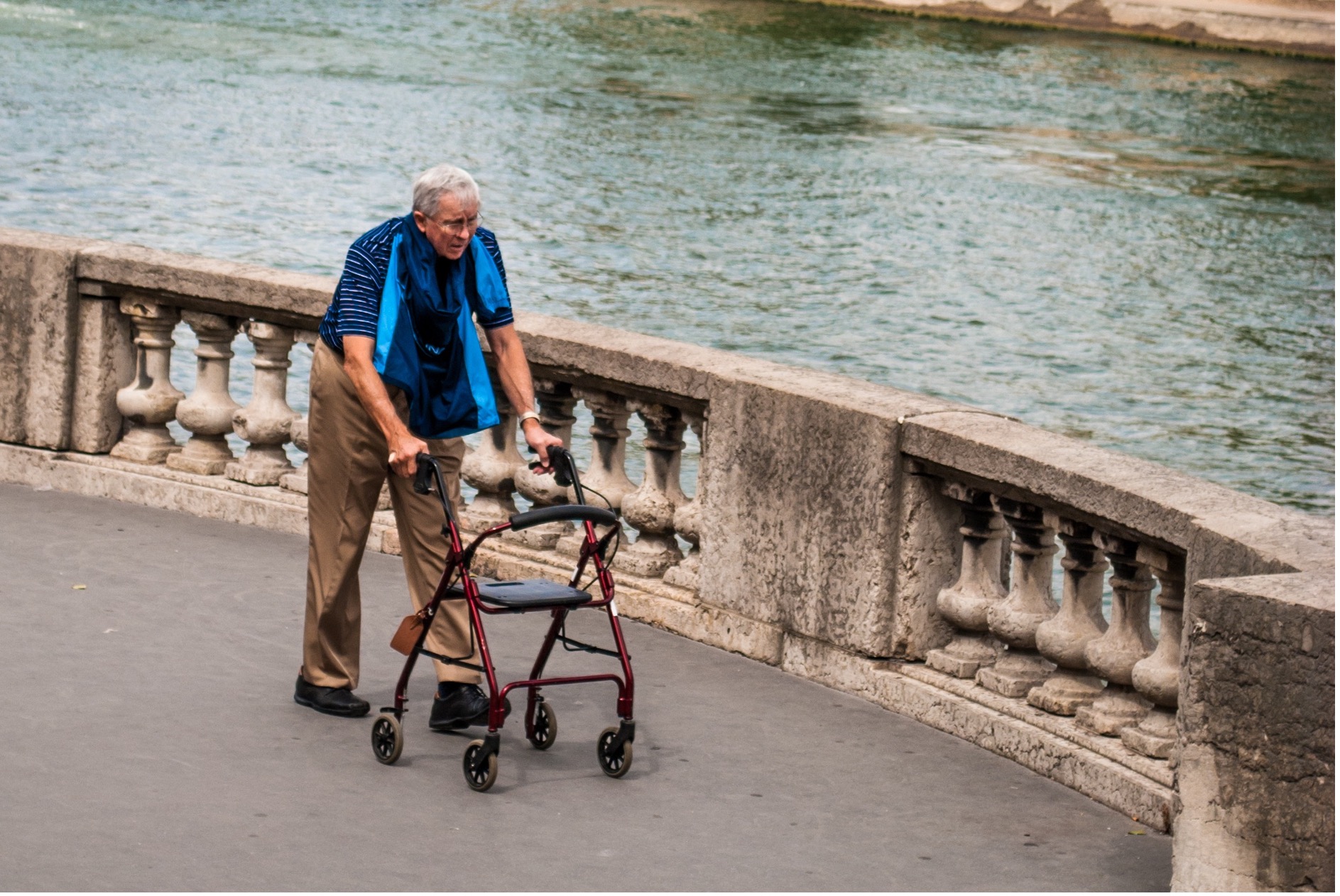
Activity Five
Humour
“Humor, which can become a form of protection against the gravity of a problem or an easy dismissal of it, can also function as an active opening device. As an antidote to fear, it shows problems to be less monolithic and impenetrable than they might initially appear. The kind of humor that results when surprising connections are made is particularly valuable to the vulnerablist; it shakes things up from the inside.”
The quote is from this article about vulnerablism and poetry.
More points made are that vulnerability involves risk. . . “Vulnerablist poetry, therefore, will never be fully consistent, complete, or self-sufficient. It may feature an aesthetic of disruption, in which the internal logic of the poem is methodically sabotaged, or in which its modes of consistency are called into question.”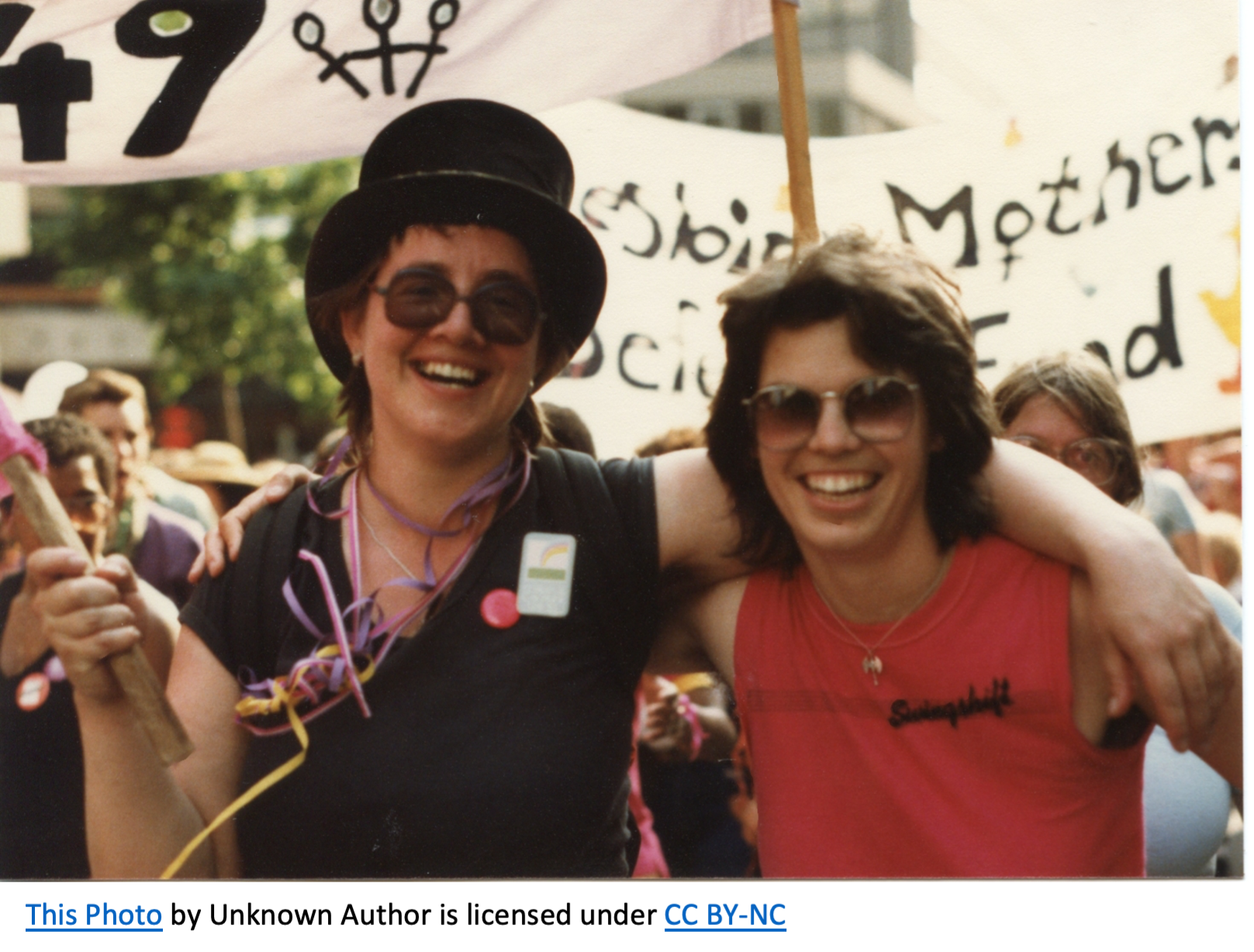
All of this helps create room for newness beyond orthodoxy. It helps us notice structures we’re relying on without conscious awareness.
In this it reminds me of Judith Jack Haberstam’s book The Queer Art of Failure that I’m reading at the moment.
“The Queer Art of Failure is about finding alternatives—to conventional understandings of success in a heteronormative, capitalist society; to academic disciplines that confirm what is already known according to approved methods of knowing; and to cultural criticism that claims to break new ground but cleaves to conventional archives. “
Activity Six
Possible Futures
Where can we turn to engage with people who are busy envisioning a radically different future for the earth and all Beings? A future generated in full acceptance of our inter-connectivity, one that is fair, safe, and more pleasurable?
Some key topics I have found useful in exploring the question of a possible future are
- womanist and feminist science fiction
- animism
- queer theory
- liberation theology
- performance arts
One way these have supported my learning is by introducing me to new frames of reference. Another way is at a personal level that is hard to put into words. They have made it possible for me to let go of the things that were getting in the way of me knowing – myself, the world, other people – in new ways.
In many of these fields I am still very much a novice, unknowing of the framings, practices, ideas, and norms for relating, that scholars and practitioners take for granted.
Opening to the unknown has been, still is, disorienting, generative, scary and liberating.
What are the knowledge traditions that support you to make sense of things in ways that potentiate a fairer future?
What are the knowledge traditions and practices that sustain you?
You can read about “A radical practice in Liverpool: the rise, fall and rise of Princes Park Health Centre” here. It’s a really inspiring story about GPs and other people working with the community to tackle the deep roots of health injustice and suffering.
Activity Seven
Resources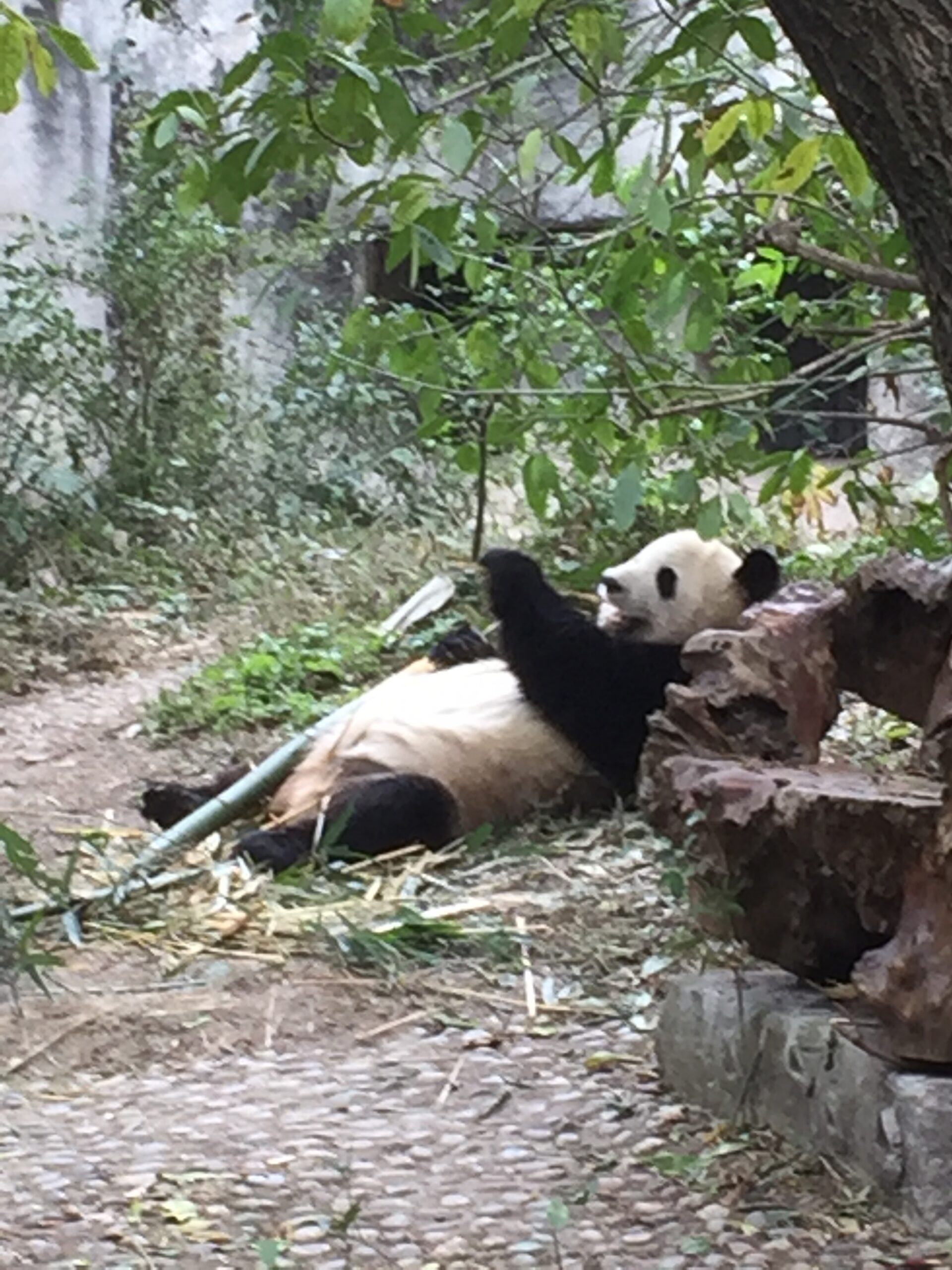
- I googled ‘the future is sensual’ and this is an easy-read from Salon magazine that came up.
- This looks fun! Rebel Eaters Club podcasts.
- Ecosexuality explores human/nonhuman indivisibility using the erotic. The manifesto re-presents ancient indigenous/earth-honouring wisdom and values from within a western tradition.
- Can queer theory save HAES, from healthism etc? A 2016 article by Jenna and Jacqui.
- Thanks to Guy for sharing this fabulous article on queer theory for lichens.
